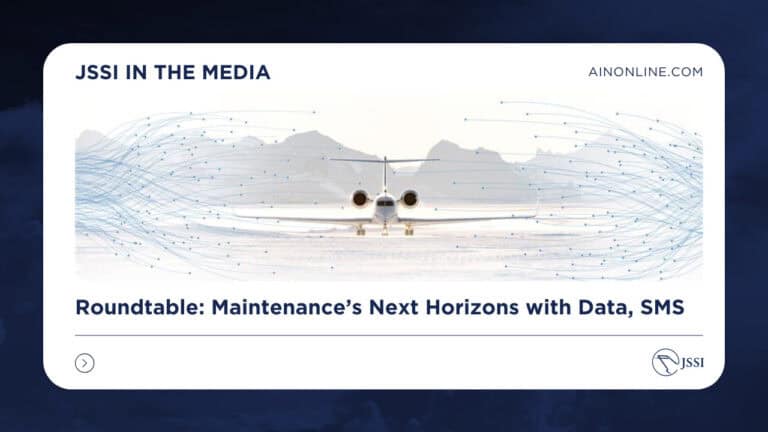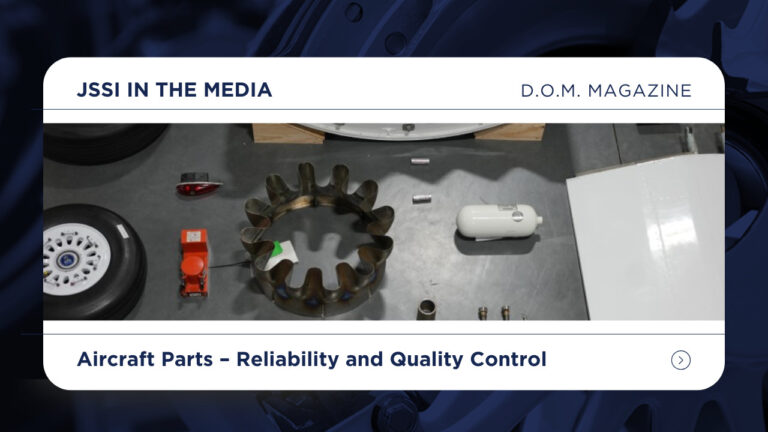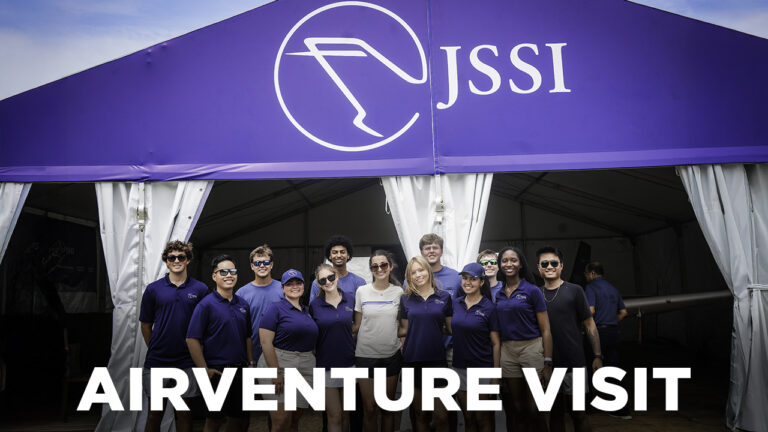
In this article, JSSI Parts & Leasing’s Pratt & Whitney Product Line Manager Kalven Carpenter explains some of the key factors aircraft owners and operators should consider when looking to lease an aircraft engine.
JSSI Can Help Keep You Flying During a Maintenance Event
Industry insiders aren’t surprised to hear that the increase in private aviation flying hours in 2021 led to a surge of aircraft maintenance activity worldwide.
With necessary engine overhauls approaching and jet engine maintenance shops at full capacity and scheduling up to six months out, business aircraft operators must turn to alternative solutions to keep their fleet in the air, specifically jet engine leasing, as they await their overhaul completions.
Leasing a Jet Engine is Typically Covered By Your JSSI Hourly Cost Maintenance Program
If your turbine engine is already covered by a Jet Support Services, Inc. (JSSI) Hourly Cost Maintenance (HCM) Program, leasing replacements are typically included. However, if you are not enrolled on a JSSI jet engine maintenance program, you likely will need to do additional legwork to secure an engine to support an off-wing engine event, such as directly seeking lease engines from the original equipment manufacturer (OEM), or an OEM-approved maintenance shop with available rental engines. Alternatively, you may need to find an independent leasing company that supports your engine type.
Jet Engine Leasing Considerations
When it’s time to lease a business aircraft jet engine, you’ll want to consider the following:
Engine availability
Supply chain issues for critical aircraft parts are delaying shop turn times, which in turn is extending on-wing rental times and causing a market shortage on certain models of lease engines.
Jet engine leasing rates
With so many supply chain issues and constraints, aircraft operators may not have the option to compare prices or “shop around.” Should you find multiple options, you’ll need to compare rates that may include a per day or per hour cost, or even a flat event fee. These are usually set by OEMs, although you may find lower lease rates with independent lease companies or from the maintenance shop performing the work.
When comparing rates, look for a cost that correlates most to your specific aircraft utilization. For example, if you’re an operator who flies fewer hours per month, you may be able to negotiate a smaller daily rate, coupled with a higher hourly rate. On the other hand, high-usage operators may prefer a larger daily rate with a lower hourly rate.
Lease contract or bailment agreement
Whether it’s a lease or a bailment agreement, where physical possession of the engine is transferred to you for a time, always read the entire agreement and ensure you fully understand the terms and conditions. This is essential to make sure you meet the requirements and don’t find yourself in breach of the lease or bailment contract, which could lead to penalties.
All jet engine lease agreements require you to name the leasing company as a co-beneficiary on the aircraft hull insurance policy and generally require a minimum amount of liability coverage. Familiarize yourself with the lease agreement before you sign, so you can have everything set up prior to receiving the engine.
Engine installation
Always ask for logbook details in advance for your own technical review. The logbooks document the history of that engine and will include the previous removal entries, preservation history, and authorized return-to-service documentation. Review these prior to shipment, so you’re assured the paperwork is acceptable for engine installation in your aircraft. If you’re working with JSSI through our HCM program, we’ll handle all the details for you.
Lease engine maintenance
Routine inspections or basic maintenance may be required while the engine is on your aircraft at your expense. Know who is responsible for performing and paying for the maintenance as written in the lease agreement.
No HCM Program? JSSI Can Still Help You with Jet Engine Leasing
Even if you aren’t enrolled in a JSSI HCM Program, JSSI still can help you support an off-wing engine event. With over 40 engines and APUs in our lease portfolio, we offer variety of jet engine leasing solutions through JSSI Parts & Leasing, as well as an engine maintenance event management service through JSSI Advisory Services.
JSSI Advisory Services can provide an on-site technical representative at the maintenance shop to ensure the aircraft engines are put back into service as efficiently as possible. We will provide oversight and monitor the disassembly and major repair milestones; ensure all quality standards are met; validate that the proper work scope is performed; reduce costs with the JSSI Parts & Leasing rotable pool of inventory; and complete an invoice audit following the event to ensure the accuracy and fairness of all costs.
Additional Aircraft Maintenance Services
JSSI offers a suite of products and services to support every hour of aircraft ownership, including aircraft engine maintenance programs, aircraft parts, maintenance tracking software, maintenance event management, aircraft comparison and benchmarking tools, state tax information, and consulting services.
Contact us to learn more about how JSSI can help you take the stress out of managing business aircraft operations, regardless of where your jet is in the aircraft life cycle.
About the Author
Kalven Carpenter has 20 years of industry experience, including 10 years at Pratt & Whitney, working with clients to manage engine maintenance event costs while providing significant cost savings. He works closely with JSSI Technical Advisors to manage client maintenance events and oversees an inventory of Pratt & Whitney complete engines and components with a market value of more than $15M.






